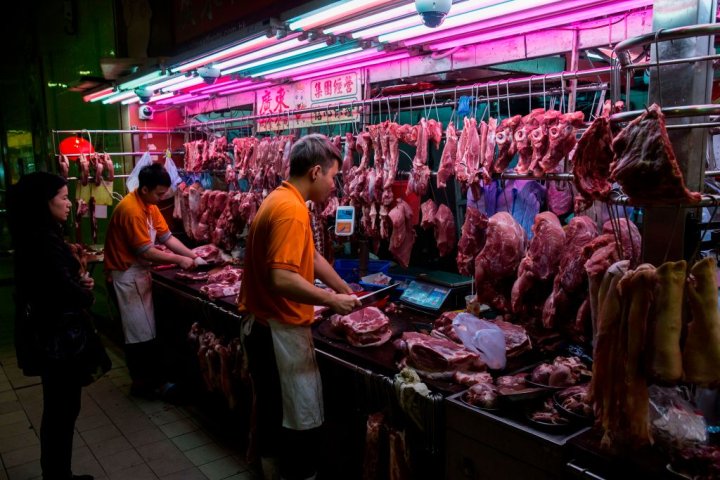[ad_1]

Wuhan, the city in China where the first cases of the novel coronavirus were reported late last year, has banned the eating of wild animals and is paying farmers to stop breeding exotic animals.
It’s part of a crackdown following the quick spread of the highly contagious respiratory virus, which has been linked to China‘s illegal wildlife trade.
Local officials in Wuhan, located in Hubei province, announced on Wednesday that the eating of all wild animals is officially banned, CBS News reports.
The crackdown, officials said, involves buying out wild animal breeders, imposing strict controls on animal breeding and a ban on all hunting of wild animals. The city is now calling itself “a wildlife sanctuary.”
Wildlife farmers in Hunan and Jiangxi provinces are set to be compensated for switching to growing fruits, vegetables, tea plants or herbs.
Officials do make an exception, however, for “scientific research, population regulation, monitoring of epidemic diseases and other special circumstances,” the Independent says.
The announcement comes after earlier restrictions in China following the virus’ spread. In April, Shenzhen banned eating dogs and cats, becoming the first city in China to impose such bans.
According to the Independent, researchers believe the virus likely passed from animals to humans “in a ‘zoonotic spillover’ event.” Some of the first cases were linked to a seafood market in Wuhan.
[ Sign up for our Health IQ newsletter for the latest coronavirus updates ]
Though it hasn’t been confirmed, one of the suspected sources of the virus is the Huanan Seafood Wholesale Market, which had a live animal section reportedly selling everything from live wolf pups to scorpions.
Peter Li, Humane Society International’s China policy specialist, said in a statement: “Wuhan’s ban on wildlife consumption is extremely welcome as a clear recognition that the public health risk of zoonotic disease spread via the wildlife trade must be taken very seriously if we are to avoid another pandemic.”
Per the Independent, farmers in Hunan are being offered specific monetary compensation for different animals, including $88 per porcupine, $84 per civet cat and $345 per muntjac deer or wild goose, among other animals.
[ad_2]
Source link
Dear readers, we really need your support to keep on serving you with authoritative, truthful, and juicy stories everyday. For your support, please reach out to the editor @gavelinternational66@gmail.com

